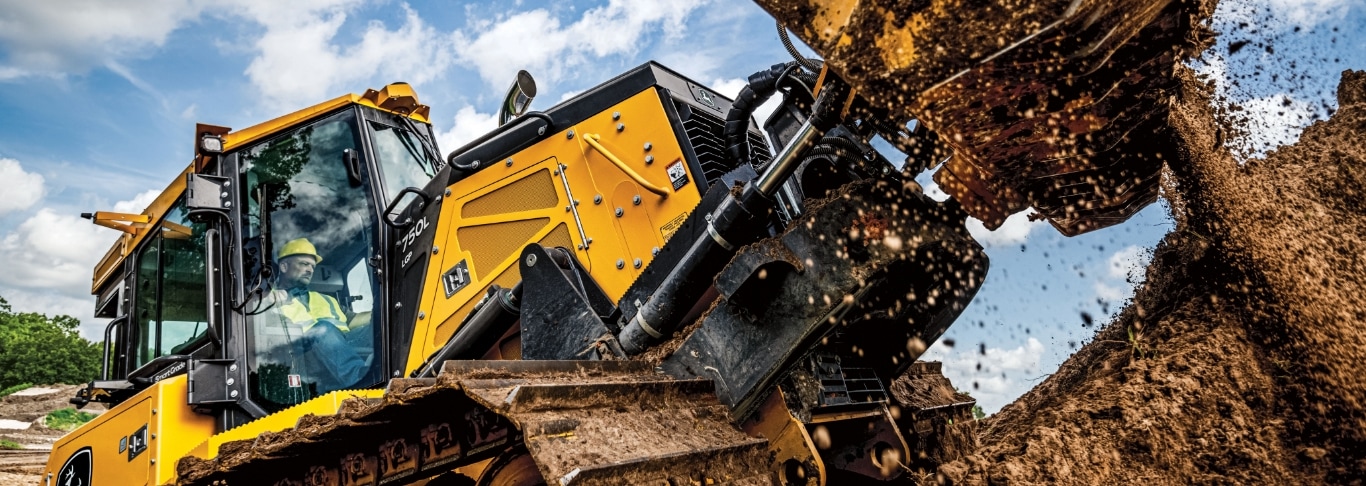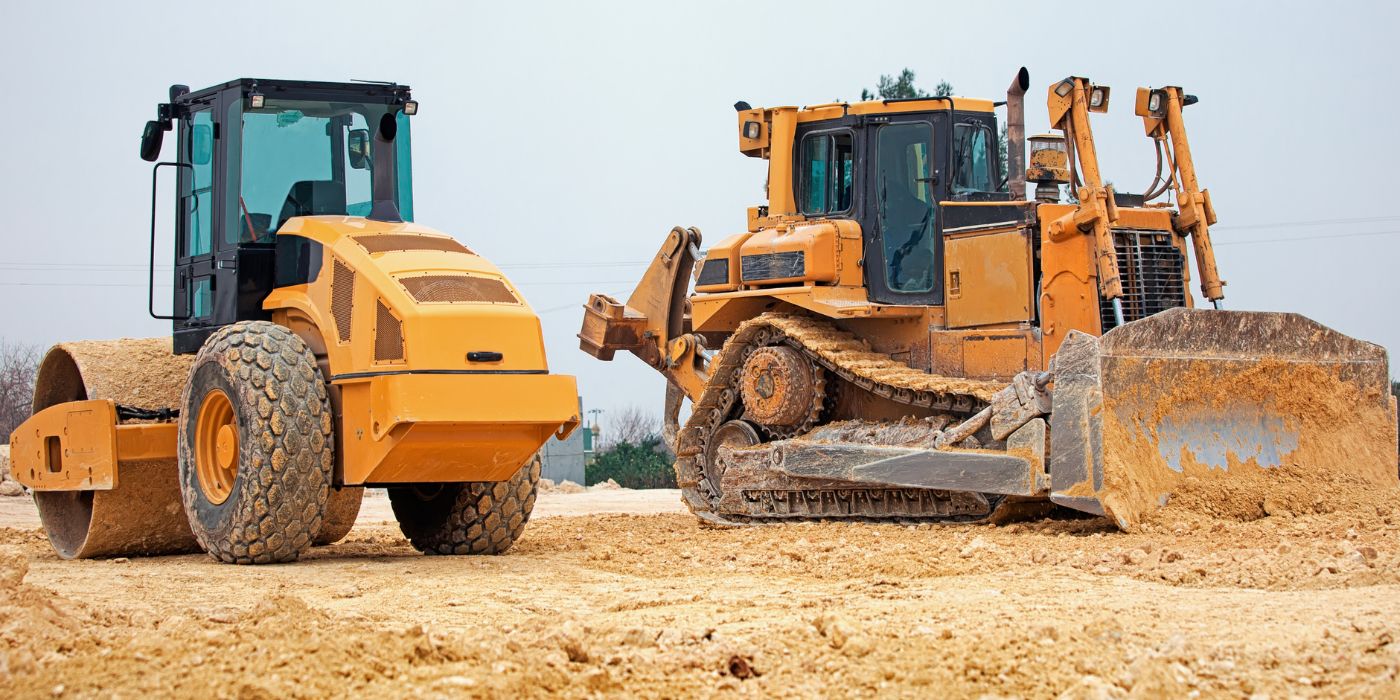Forklift Rental in Tuscaloosa, AL: Versatile Lifting Solutions for Your Requirements
Forklift Rental in Tuscaloosa, AL: Versatile Lifting Solutions for Your Requirements
Blog Article
Checking Out the Financial Perks of Leasing Building Tools Compared to Having It Long-Term
The decision in between owning and leasing construction devices is crucial for monetary administration in the industry. Renting offers instant expense savings and functional adaptability, permitting business to designate sources a lot more effectively. In contrast, possession includes considerable long-lasting monetary dedications, consisting of maintenance and depreciation. As professionals consider these alternatives, the influence on capital, job timelines, and innovation accessibility comes to be increasingly significant. Understanding these nuances is crucial, especially when thinking about how they align with details job requirements and economic strategies. What aspects should be focused on to ensure optimum decision-making in this facility landscape?

Cost Contrast: Renting Out Vs. Having
When examining the financial effects of leasing versus owning construction equipment, a thorough cost comparison is crucial for making notified decisions. The selection in between leasing and owning can substantially impact a business's bottom line, and understanding the linked costs is crucial.
Leasing building tools normally entails reduced upfront expenses, enabling services to assign resources to other operational demands. Rental expenses can collect over time, potentially going beyond the cost of possession if tools is required for an extensive period.
On the other hand, owning building devices requires a significant preliminary financial investment, together with recurring prices such as funding, insurance policy, and depreciation. While possession can result in long-lasting cost savings, it likewise locks up capital and might not give the same degree of versatility as renting. Additionally, owning equipment requires a commitment to its application, which may not constantly align with task demands.
Eventually, the decision to possess or rent should be based on a comprehensive evaluation of particular project needs, monetary capacity, and long-term calculated objectives.

Upkeep Expenditures and Obligations
The selection between having and renting building and construction devices not just includes monetary factors to consider however also incorporates continuous upkeep expenses and duties. Possessing equipment needs a significant commitment to its upkeep, which consists of regular assessments, repair services, and possible upgrades. These responsibilities can quickly collect, bring about unforeseen costs that can stress a spending plan.
On the other hand, when renting out equipment, upkeep is typically the obligation of the rental firm. This arrangement permits specialists to stay clear of the financial problem associated with damage, in addition to the logistical difficulties of scheduling repairs. Rental arrangements usually consist of provisions for upkeep, implying that service providers can concentrate on completing jobs instead of fretting about tools problem.
Additionally, the varied variety of devices available for lease enables business to select the latest designs with sophisticated technology, which can enhance effectiveness and productivity - scissor lift rental in Tuscaloosa, AL. By going with services, services can prevent the lasting liability of devices depreciation and the associated maintenance headaches. Inevitably, evaluating upkeep costs and responsibilities is vital for making an educated decision regarding whether to rent or have construction equipment, substantially influencing overall task prices and operational performance

Depreciation Influence On Ownership

A significant aspect to take into consideration in the choice to have building and construction devices is the effect of depreciation on overall possession costs. Devaluation represents the decline in value of the tools in time, affected by elements such as use, damage, and innovations in innovation. As tools ages, its market value lessens, which can dramatically impact the owner's financial position when it comes time to trade the equipment or offer.
For building and construction companies, this depreciation can equate to substantial losses if the equipment is not used to its maximum capacity or if it comes to be outdated. Proprietors should represent depreciation in their monetary estimates, which can cause greater general prices compared to leasing. In addition, the tax implications of devaluation can be complicated; while it may supply some tax benefits, these are frequently offset by the reality of minimized resale value.
Ultimately, the concern of depreciation highlights the value of comprehending the lasting economic dedication associated with owning construction devices. Business must carefully review just how often they will certainly use the equipment and the potential monetary influence of devaluation to make an educated choice regarding ownership versus renting out.
Financial Versatility of Renting
Renting out construction tools uses substantial monetary flexibility, permitting firms to assign sources more efficiently. This flexibility is especially essential in a sector characterized by fluctuating project demands and differing workloads. By deciding to rent, organizations can avoid the significant funding expense required for purchasing devices, preserving capital for other operational requirements.
Furthermore, leasing devices allows firms to tailor their equipment selections to certain job needs without the lasting commitment related to possession. This suggests that organizations can quickly scale their tools supply up or down based upon present and anticipated job requirements. Subsequently, this versatility decreases the risk of over-investment in equipment that might become underutilized or outdated gradually.
One more economic advantage of leasing is the capacity for tax obligation advantages. Rental settlements are usually taken into consideration operating budget, permitting immediate tax reductions, unlike devaluation on owned devices, which is topped several years. scissor lift rental in Tuscaloosa, AL. This immediate expenditure acknowledgment can additionally boost a firm's cash placement
Long-Term Task Factors To Consider
When evaluating the long-term requirements of a construction business, the decision in between owning and renting tools comes to be a lot more complicated. For tasks with my response extensive timelines, purchasing devices may seem advantageous due to the potential for lower overall prices.
The building and construction industry is progressing rapidly, with new tools offering boosted effectiveness and security attributes. This versatility is specifically valuable for companies that manage diverse projects requiring various types of equipment.
Moreover, economic stability Visit This Link plays an essential role. Having tools usually entails considerable capital financial investment and devaluation concerns, while leasing permits even more foreseeable budgeting and money circulation. Eventually, the option between having and renting ought to be aligned with the strategic goals of the building and construction service, considering both awaited and present job demands.
Final Thought
To conclude, renting out construction tools offers substantial financial benefits over long-lasting ownership. The minimized upfront costs, removal of upkeep obligations, and evasion of depreciation add to enhanced cash circulation and monetary versatility. scissor lift rental in Tuscaloosa, AL. In addition, rental payments act as prompt tax reductions, additionally benefiting contractors. Inevitably, the choice to lease instead than very own aligns with the dynamic nature of building projects, enabling flexibility and access to heavy duty transmission jack rental the current equipment without the financial worries connected with possession.
As equipment ages, its market value decreases, which can substantially affect the proprietor's financial position when it comes time to offer or trade the equipment.
Renting out building and construction tools uses considerable economic versatility, allowing companies to assign resources more successfully.In addition, renting out devices makes it possible for business to tailor their equipment options to details task demands without the lasting dedication connected with ownership.In conclusion, renting construction tools provides significant monetary advantages over long-term ownership. Eventually, the choice to rent out rather than very own aligns with the dynamic nature of construction tasks, enabling for adaptability and accessibility to the most current devices without the financial worries associated with possession.
Report this page